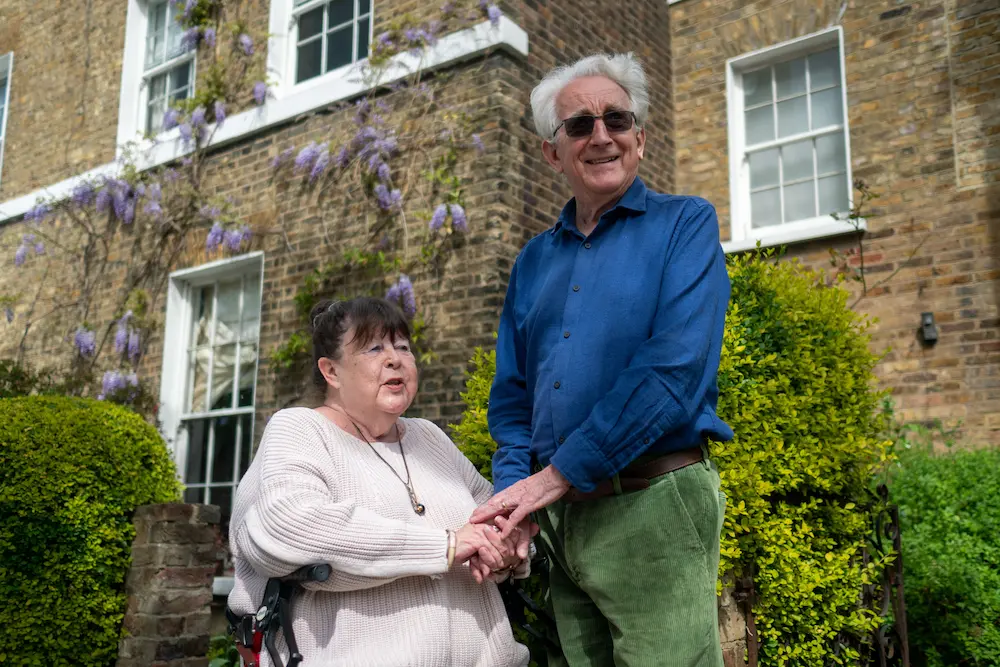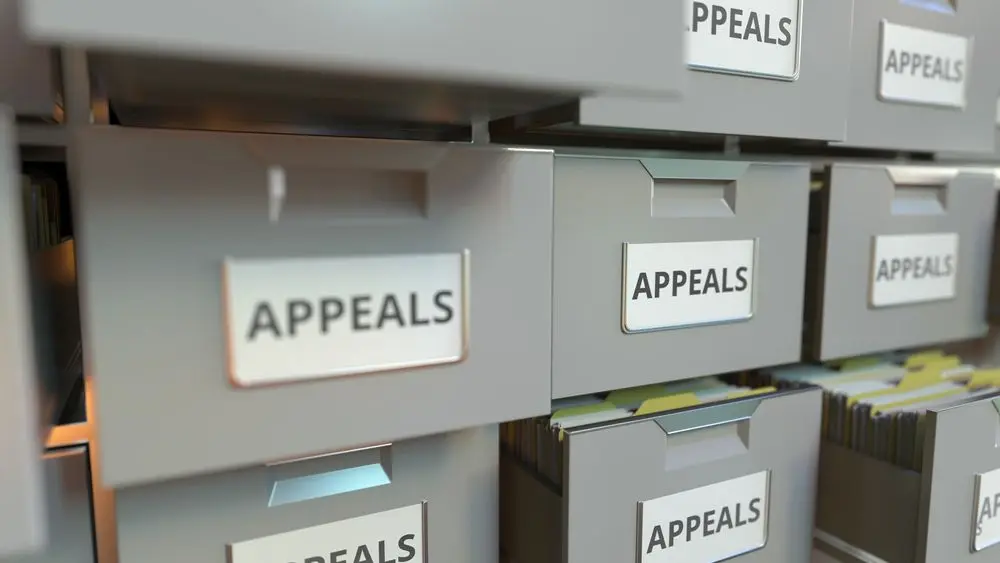Personal Independence Payment Explained (and How to Claim It)

Estimated Reading Time: 15 minutes
This article was reviewed by Sara Chapin, Director of Finance at Lottie, on 24th January 2025, to ensure accurate and trustworthy information for care seekers. Sara Chapin has been a Certified Public Accountant with the National Association of State Boards of Accountancy since 2017. Next review due January 2026.
Personal Independence Payment (PIP) is a type of benefit that helps people with the extra costs caused by living with a long-term health condition or disability. It has replaced Disability Living Allowance (DLA) for people between the ages of 16 and State Pension age, a process that started in April 2022.
Personal Independence Payment (PIP) statistics show that as of the 30th of April 2023, there were just over 3.3 million claimants entitled to the benefit across England, Wales, and Scotland, with 36% of these claimants receiving the highest level of the award.
Here, we’ve explained everything you need to know about surrounding Personal Independence Payments, including what they are and how they work, who is eligible, what they entitle you to and how to claim it.
Arrange care at home
Browse the best home care in your area.
In this article:
- What is personal independence payment (PIP)?
- How it works
- How assessments work
- What personal independence payment entitles you to
- Eligibility
- How much you can get
- When payment starts and stops
- How to claim personal independence payment
- PIP reviews and decision appeals
- PIP in Scotland
- What else does PIP entitle you to?
- Disability living allowance (DLA)
We aren't able to provide Personal Independence Payment (PIP) advice through our concierge service. For help when trying to claim PIP, call the PIP claims contact number on 0800 917 2222. Citizens Advice, Turn2us and many local authorities can also provide free and confidential PIP advice.
What Is Personal Independence Payment (PIP)?
When aged 16 or over, Personal Independence Payment (PIP) can help you or your loved one out with extra living costs if you have:
- A disability or a long-term physical or mental health condition
- Difficulty performing some everyday tasks or getting around as a result of this condition
Both of these need to apply to be eligible for PIP. Because this is a non means-tested benefit, you can get it regardless of how much you earn or whether you have savings and capital.
For detailed information about how to claim, how long the form will take to complete and whether your application has been successful or not, download our Personal Independence Payment guide and checklist, written by our Lead Care Expert Hannah Karim.
How It Works
There are two distinct parts to PIP:
1. Daily living part
If you require help with daily tasks.
2. Mobility part
If you require help with mobility and generally getting around.

Whether you’re eligible, will get one or both parts and how much funding you get will depend on how difficult you or your loved one find everyday tasks and getting from one place to another.
If you or your loved one are terminally ill, you’ll automatically receive the daily living part. In this instance, whether you get the mobility part will still depend on your needs.
Daily living
You may be eligible for the daily living part of the Personal Independence Payment if you require some assistance with:
- Eating, drinking, preparing and cooking food
- Taking care of personal hygiene and using the toilet
- Getting dressed and undressed
- Reading and clearly communicating
- Managing and taking medication
- Making financial decisions
Mobility
You may be eligible for the mobility part of the Personal Independence Payment if you need help and support with:
- Physically moving around
- Leaving your home
- Figuring out a route and being able to accurately follow it
You or your loved one don’t have to have a physical disability to be eligible for this part. You may be eligible if you have difficulty getting around due to feelings of unease or anxiety.
How Assessments Work
When making a PIP claim, you will need to do a face to face assessment which looks at your ability to carry out a series of common everyday tasks and activities. This assessment takes into account the overall impact of a health condition on your ability to be independent, rather than focusing on the condition itself.
Personal Independence Payment isn’t compensation for a certain health condition, but is instead there to help with the increased costs of day-to-day living as a result of this condition or disability.
The activities explored during the assessment are:
- Preparing food and cooking a basic meal
- Taking nutrition
- Monitoring your health condition
- Personal hygiene
- Using the toilet and incontinence (if relevant)
- Getting dressed and undressed
- Verbal communication
- Being able to read and understand signs, symbols and words
- Engaging with other people face-to-face
- Budgeting and other financial decisions
The assessment will also look at two mobility-related activities; these being moving around and making journeys from one place to another.

Each of these activities has a score that relates to how difficult it is to properly carry out. The total score across these activities will determine whether you or your loved one qualify.
The entitlement threshold for each component (daily living and mobility) is 8 points for the standard rate and 12 points for the enhanced rate.
What Personal Independence Payment Entitles You To
If you get Personal Independence Payment then you might be entitled to some extra money on top of any existing benefits. PIP can also provide you with a reduction in council tax or road tax, along with public transport concessions.
To apply for this extra help, you or your loved one will first need your PIP award letter (this is sometimes called a PIP award notice). This is sent when the Department for Work and Pensions (DWP) decides on your claim.
You might receive a top-up (also referred to as a premium) on the following benefits if you’re eligible for PIP:
- Housing Benefit
- Jobseeker’s allowance
- Income support
- Working tax credit
- Employment and support allowance (but only if you get the daily living component of PIP)
- Pension credit (but again, only if you get the daily living component of PIP)
We can help you find the best home carer for you or your loved one’s care needs, including domiciliary (hourly) and live-in carers. Request a free list of home care agencies, and our care experts will match you with suitable carers with availability in your local area.
Eligibility
You or your loved one will be eligible for Personal Independence Payment if all of the following apply:
- You’re aged 16 or over
- You have a disability or a long-term physical or mental condition
- You struggle with daily tasks or mobility
- You’ve had these difficulties for at least three months and expect them to continue for at least another nine months
- You’re under the State Pension age (this is currently 66 but is gradually increasing)
There’s no set list of medical conditions that make you eligible for Personal Independence Payment (PIP) in the UK. Eligibility for PIP depends on how a long-term condition or disability affects your daily life and mobility, including things like washing, dressing, shopping, making decisions and getting from one place to another. This condition or disability must have affected you for at least three months, and you expect to continue being affected for at least another nine months.
With that said, the Department for Work and Pensions has provided a list of the main categories of qualifying disabilities and how many people claimed PIP for that disability, from 2019 to October 2024. These 21 categories encompass 547 different conditions - and these can be found here.
The five most common conditions people claim PIP for are:
- Psychiatric disorders - Around 38% of total claims
- Musculoskeletal diseases (general) - Around 19% of total claims
- Neurological diseases - Around 13% of total claims
- Musculoskeletal diseases (regional) - Around 12% of total claims
- Respiratory diseases - Around 4% of total claims
If you're over State Pension age, you won't be able to make a new claim for PIP. Instead, you'll have to claim Attendance Allowance. If you’ve previously received Personal Independence Payments then you can still make a new claim if you were eligible for it in the year before you reached State Pension age.
How Much You Can Get
How much Personal Independence Payment you get depends on how much help you need as a result of your condition or disability.
The mobility part might be paid if you need help with mobility tasks such as getting from one place to another, while the daily living part might be paid if you need support with carrying out everyday tasks and activities.
Each component will be paid at either a standard or enhanced rate. You’ll be paid for one or both of these components at the standard rate or enhanced rate. This will be worked out using the results of your assessment.
PIP rates increased by 1.7% for 2025/2026. Now, if you’re eligible for the enhanced rate of both components, you’ll get £187.45 a week. Here are the PIP amounts for 2025/2026:
- Daily living - £110.40 at the enhanced rate and £73.90 at the standard rate
- Mobility - £77.05 at the enhanced rate and £29.20 at the standard rate
If you have a terminal illness, you’ll automatically get the enhanced rate of the daily living component of PIP.
| PIP Element(s) and Rate(s) | Weekly Rate 2025/2026 | Four-Weekly Rate 2025/2026 |
|---|---|---|
| Daily Living Enhanced Rate | £110.40 | £441.60 |
| Daily Living Standard Rate | £73.90 | £295.60 |
| Mobility Enhanced Rate | £77.05 | £308.20 |
| Mobility Standard Rate | £29.20 | £116.80 |
| Daily Living Enhanced Rate + Mobility Enhanced Rate | £187.45 | £749.80 |
| Daily Living Enhanced Rate + Mobility Standard Rate | £139.60 | £558.40 |
| Daily Living Standard Rate + Mobility Enhanced Rate | £150.95 | £603.80 |
| Daily Living Standard Rate + Mobility Standard Rate | £103.10 | £412.40 |
When Payment Starts & Stops
Personal Independence Payment is paid every four weeks. However, if you have a terminal illness then this is instead paid every week.
The daily living component of PIP stops after you’ve been living in a care home for 28 days. It will then start again if you leave this residential home to live independently. The mobility component of PIP will continue to be paid as normal, regardless of how long you spend in a care home.
If you’re aged 18 or over then your PIP will stop after you’ve been a hospital patient for 28 days in a row and will start again after being discharged from the hospital.
How to Claim
Before applying for Personal Independence Payment, first check if you’re eligible.
To claim PIP, you need to:
Contact the Department for Work and Pensions and fill in a PIP1 form
If you qualify, they’ll then send you a ‘how your disability affects you’ form that asks about your condition
Complete and return this form
You may also need to have a medical assessment after filling in this form
Contacting the Department for Work and Pensions (DWP)
This government department is responsible for welfare, pensions and child maintenance policy. As the UK’s biggest public service department, it handles the State Pension and a range of state benefits. You can contact the Department for Work and Pensions (DWP) here.
Through this link, the services you’ll find include:
- Jobcentre Plus
- Pension service
- Disability service centre
- Policy enquiries
PIP1 form
The first stage to claiming is to contact the Department for Work and Pensions and fill in the PIP1 form. If you get in touch over the phone then they can do this for you.
From first contacting this government department, it can take up to six months to receive your first payment. However, if it’s decided that you or your loved one are eligible for PIP then you’ll be paid the money you should have got from the date that this claim started.
Here’s an example of the PIP1 form.
'How your disability affects you’ form
When you apply for Personal Independence Payment, you’ll need to fill in this form.
This form asks about things like how your health condition affects you on a daily basis, how you manage treatments, whether or not this condition affects your ability to go outside and other, similar points.
Here’s an example of the ‘How Your Disability Affects You’ form.
Medical assessment
Most people will also have a medical assessment to claim Personal Independence Payment. Depending on where you live, this will be carried out by Independent Assessment Services or Capita.
This appointment could either be over the phone or in person.
During this assessment, the following will take place:
Conversation - A health professional will ask you questions concerning how your health affects everyday life (they should have already read through your completed form by this point so will know your background)
Examination - You may be asked to complete simple arithmetic based tasks and similar brain teasers. There may also be a physical examination where you’ll be asked to perform simple movements like pushing against the health professional’s hand with your hand or foot
If this assessment is in person then you should take your appointment letter, any medical evidence and two proofs of identity (such as a passport, UK driving licence, birth certificate, council tax bill or housing associate tenancy agreement).
Providing Evidence for Your PIP Claim
To increase the chances of your claim being approved, it might be helpful to gather some supporting documents. The more evidence you provide as to how your condition or disability affects you on a day-to-day basis, the easier it’ll be for the Department of Work and Pensions to make the right decision about your claim.
You can send these documents to the Department for Work and Pensions at any time before they make a decision on your claim.
These are all useful to include:
- Medical records
- Sick notes
- Prescriptions
- Diary of daily routine
- Letters from medical professionals
- Letters from other professionals
- Letters from anyone else who helps you
Ask for any medical records or letters as soon as possible, as getting these can take a while. If possible, make a copy of your documents and keep one of each for yourself. It’s also a good idea to write your National Insurance number on what you send over, just in case it gets separated from the rest of your claim after the Department for Work and Pensions receives it.
If you do an online form then you can instead upload digital copies of evidence.
PIP Reviews
If your Personal Independence Payment is approved then you’ll receive a letter saying when your claim will end and if it will be reviewed. You’ll continue to get PIP while your claim is being reviewed.
Here’s how a PIP review works:
First, you’ll get a letter asking you to fill in a form called ‘Award Review - How Your Disability Affects You’
Fill in this form using the notes that come with it
Send this form and any supporting information that you haven’t previously shared with the Department for Work and Pensions. You’ll need to do this within one month (the form will explain what to include and where to send it)
The Department for Work and Pensions will then review this form. If they require any extra info then you may be phoned by an independent health professional who will ask some follow-up questions. You may also be invited by letter to an assessment
Finally, you’ll get a letter telling you what will happen with your PIP. If your needs have changed then this will either increase, decrease or stop altogether
PIP Decision Appeals
If you or your loved one disagree with a decision about benefits, tax credits or child maintenance then you can ask for this decision to be reviewed again. This is known as a ‘mandatory reconsideration’.
Some decisions can’t be reconsidered, while others can go straight to an appeal. Your original decision letter will explain whether this applies to you.
You can appeal any decision made about your Personal Independence Payment claim. Some of the most common reasons for appealing are:
- You didn’t get PIP
- You got a lower level of PIP than what you were expecting
- You think your PIP award should last for longer
This appeal will look at whether the correct decision was made at the time. It won’t take into account whether your condition has changed since then.

To be allowed to appeal to a tribunal, you’ll need:
- A letter from the Department for Work and Pensions with the words ‘Mandatory Reconsideration Notice’ at the top (you can ask for a new one if you’ve lost this)
- To send your appeal form over within one month of the date displayed on the mandatory reconsideration notice
PIP In Scotland
In Scotland, the Adult Disability Payment has begun to replace Personal Independence Payment and Disability Living Allowance for adults across a staggered rollout that started in March 2022.
Depending on whereabouts you live in Scotland, you might need to apply for Adult Disability Payment (ADP) instead of PIP. You can check if you’re eligible for ADP here.
If you can’t yet apply for ADP then you should continue to apply for PIP. There’s no need to worry about this, as you’ll get a letter informing you of when you’ll be automatically moved from PIP to ADP.
Depending on how a health condition affects you or your loved one, you could receive between £29.20 and £187.45 a week. This benefit is paid by Social Security Scotland, rather than the Department for Work and Pensions.
So if you’re already claiming PIP or DLA, Social Security Scotland will contact you about moving over.
What Else Does PIP Entitle You To?
If you're eligible for PIP, you might also be able to get several discounts and concessions alongside the weekly payment. These include:
- Capped water bills
- Council Tax discounts
- Discounted days out (such as through Merlin Entertainment attractions and using National Trust and English Heritage's Essential Companion Card
- Free NHS prescriptions
- Motability Scheme vehicle
- Discounts on toll roads
- Transport discounts, such as through a disabled person’s bus pass and disabled person’s railcard
- Benefit top-ups (if you qualify for a disability premium)
Disability Living Allowance (DLA)
If you or your loved one are living with a disability and have mobility or other care needs then Disability Living Allowance is a monthly payment that helps out.
DLA is paid at different rates and is tax-free, depending on how much help you need.
You can claim disability living allowance if:
- You were born before 8 April 1948 and are already claiming it
- You’re claiming on behalf of a disabled person aged under 16
You’ll need to prove that you meet the criteria to keep claiming DLA. This could be either of the two components - these being the ‘care component’ and the ‘mobility component’.
If you don’t fall into either of these categories then you should instead claim a different benefit. Depending on your age, this will either be Personal Independence Payment or Attendance Allowance.
Moving from DLA to PIP
Disability Living Allowance is gradually being replaced by Personal Independence Payment for the majority of adults.
You’ll keep getting this if:
- You’re under 16
- You were born on or before 8 April 1948
If you were born after this date, you’ll then be invited to apply for PIP. You don’t need to do anything until you’re written to by the Department for Work and Pensions about changing over from DLA (unless your circumstances change).
PIP & State Pension
If you claim Personal Independence Payment after you’ve passed the State Pension age, the Department for Work and Pensions will normally give you an ‘indefinite award’. This means that there’s no end date. This will usually be reviewed every 10 or so years.
If you’re already getting PIP when you reach State Pension age, this will then be turned into an indefinite award.
Lottie matches care seekers with the best home carers for their care needs. You can request a free home care shortlist, where we’ll find you home care providers with availability in your local area.
Does PIP check with your doctor?
The Department for Work and Pensions (DWP) will review your form, before deciding if they need any further information.
They’ll often contact your GP or a different medical professional to obtain medical evidence as part of your claim process. Or, they might directly contact you with additional questions, or simply send you a letter inviting you to an assessment.
Do you need a doctor’s letter for PIP?
You don’t need a doctor’s letter or a statement (such as from your GP or a different medical professional) for your PIP claim to be successful.
With that said, including as much medical evidence as possible when applying will increase your chances of getting approved. This includes a report or letter from your GP or a different medical professional. This report will explain your condition, how it affects your day-to-day life and how you’re treated for it.
What counts as medical evidence?
For something to be classed as medical evidence, it should include the name of your condition, the date on which you were diagnosed, any prescriptions or treatment you’ve had, any specific care plans and any further information from professionals such as a GP, doctor, specialist nurse, physiotherapist, social worker, counsellor or anybody else relevant.
What are PIP assessors looking for?
During a PIP assessment, the assessor will be looking at whether you’re able to carry out a series of day-to-day activities, and how much difficulty you get from performing these tasks. This assessment will focus on the impact a medical condition has on you, rather than focusing on the diagnosis yourself.
How much is PIP per month?
Personal Independence Payment (PIP) is now worth £441.60 every four weeks at the higher daily living rate and £295.60 every four weeks at the lower rate.
You could also get £303.00 every four weeks at the higher mobility rate and £114.80 at the lower rate.
If eligible for both of these components, you could get up to £737.20 every four weeks.
Can you get PIP for life?
If you claim PIP after you’ve reached the State Pension age, you’ll usually be given an ‘indefinite award’, meaning there’s technically no end date. However, your claim will be periodically reviewed to ensure you’re still eligible and are in compliance with any new claims processes.
Free Care Fees & Funding Email Course
Written by our team of experts and designed to help families fund later life care in England.




